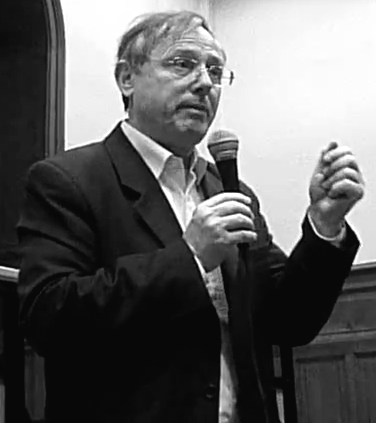Reynald Secher on:
[Wikipedia]
[Google]
[Amazon]
 Reynald Secher (born 27 October 1955) is a French historian famous for his work on the
Reynald Secher (born 27 October 1955) is a French historian famous for his work on the
 Reynald Secher (born 27 October 1955) is a French historian famous for his work on the
Reynald Secher (born 27 October 1955) is a French historian famous for his work on the War in the Vendée
The war in the Vendée (french: link=no, Guerre de Vendée) was a counter-revolution from 1793 to 1796 in the Vendée region of France during the French Revolution. The Vendée is a coastal region, located immediately south of the river Loir ...
.
Vendée
Under the supervision ofJean Meyer
Jean Meyer Barth (born February 8, 1942) is a French-Mexican historian and author, known for his writings on early 20th-century Mexican history. He has published extensively on the Mexican Revolution and Cristero War, the history of Nayarit, and ...
at the Paris-Sorbonne University
Paris-Sorbonne University (also known as Paris IV; french: Université Paris-Sorbonne, Paris IV) was a public research university in Paris, France, active from 1971 to 2017. It was the main inheritor of the Faculty of Humanities of the Universit ...
, Secher wrote a history of his home town, La Chapelle-Basse-Mer
La Chapelle-Basse-Mer (; oc, Chapel-Baz-Meur) is a former commune in the Loire-Atlantique department in western France. On 1 January 2016, it was merged into the new commune of Divatte-sur-Loire.Hugh Gough, 'Genocide and the Bicentenary: The French Revolution and the Revenge of the Vendee', ''The Historical Journal'', Vol. 30, No. 4 (Dec., 1987), p. 980. His thesis on the revolt in the Vendée ('Contribution à l'étude du génocide Franco-français: la Vendée-Vengé') won him a ''
Official website
{{DEFAULTSORT:Secher, Reynald 1955 births 20th-century French historians Historians of the French Revolution Living people 21st-century French historians
Doctorat d'État
Habilitation is the highest university degree, or the procedure by which it is achieved, in many European countries. The candidate fulfills a university's set criteria of excellence in research, teaching and further education, usually including a ...
''. These were both published in 1986.
His argument that the suppression of the revolt in the Vendée by the Revolutionary government constituted a genocide
Genocide is the intentional destruction of a people—usually defined as an ethnic, national, racial, or religious group—in whole or in part. Raphael Lemkin coined the term in 1944, combining the Greek word (, "race, people") with the Latin ...
was controversial. Reviewers denounced Secher as anti-revolutionary and anti-republican. Laurent Ladouce described the debate:
Many "progressive" thinkers and historians still approve or justify the anti-religious fervor of the revolutionaries. They are thus challenged by a recent discovery made by a 32-year-old historian, Reynald Secher. Secher presented a remarkable doctoral thesis at the Sorbonne, subtitled "The Franco-French Genocide." His thesis demonstrates that the inhabitants of the Vendée region, after they surrendered to the Republic armies in 1793, were systematically exterminated in 1794 by order of the convention led byHowever, Secher's estimate of the Vendéan casualties was criticised by historians such asRobespierre Maximilien François Marie Isidore de Robespierre (; 6 May 1758 – 28 July 1794) was a French lawyer and statesman who became one of the best-known, influential and controversial figures of the French Revolution. As a member of the Esta .... About 117,000 civilians—including women, and children—were massacred, in order that the "race" of Vendeans be obliterated as a hindrance to the progress of the Revolution.
Charles Tilly
Charles Tilly (May 27, 1929 – April 29, 2008) was an American sociologist, political scientist, and historian who wrote on the relationship between politics and society. He was a professor of history, sociology, and social science at the Univ ...
and Michel Vovelle
Michel Vovelle (6 February 1933 – 6 October 2018) was a French historian who specialised in the French Revolution.James Friguglietti, 'Michel Vovelle and the Revolutionary Succession', ''French Politics and Society'', No. 8 (December 1984), pp. 2 ...
due to objections to Secher's methodology. Tilly accused Secher of using "dubious methods to estimate the losses of population and housing attributable to the counterrevolution and its repression". François Lebrun has argued for a figure of 150,000 rebel dead, while Jean-Clément Martin estimated rebel casualties as numbering between 220,000 and 250,000. Donald Sutherland of the University of Maryland
The University of Maryland, College Park (University of Maryland, UMD, or simply Maryland) is a public land-grant research university in College Park, Maryland. Founded in 1856, UMD is the flagship institution of the University System of M ...
claimed that Secher's figures have been superseded by the research of Jacques Hussenet, who calculated losses of 165,000. Sutherland also argued that the repression of the Vendéans did not constitute a genocide and that Secher showed "an eye-popping gullibility in crediting every anti-republican atrocity story he can find".Sutherland, pp. 236-237.
Works
*''La Chapelle-Basse-Mer. Village vendéen. Révolution et contre-révolution'' (Paris: Librairie Académique Perrin, 1986). *''Le Génocide Franco-Français. La Vendée-Vengé'' (Paris: Presses Universitaires de France, 1986). **''A French Genocide: The Vendée'' (Notre Dame, Indiana: University of Notre Dame Press, 2003).Notes
References
* Hugh Gough, 'Genocide and the Bicentenary: The French Revolution and the Revenge of the Vendee', ''The Historical Journal'', Vol. 30, No. 4 (Dec., 1987), pp. 977–988. * Laurent Ladouce, 'Was France the Fatherland of Genocide?', ''The World & I'' (January 1988), pp. 685–690. * D. M. G. Sutherland, 'Review: A French Genocide: The Vendée by Reynald Secher', ''The English Historical Review'', Vol. 119, No. 480 (Feb., 2004), pp. 236–237. * Charles Tilly, 'State and Counterrevolution in France', ''Social Research'', Vol. 56, No. 1, The French Revolution and the Birth of Modernity (Spring 1989), pp. 71–97.External links
Official website
{{DEFAULTSORT:Secher, Reynald 1955 births 20th-century French historians Historians of the French Revolution Living people 21st-century French historians